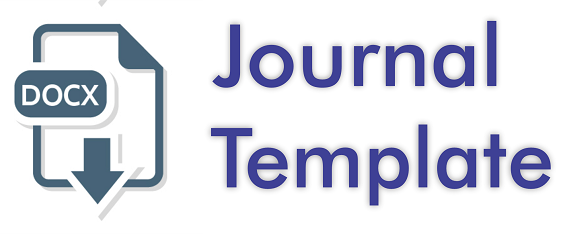The Influence Of Social Media On Waqf Funding In BPW Ar Risalah
DOI:
https://doi.org/10.59107/ri.v3i1.67Keywords:
Social Media, Waqf, FundingAbstract
Waqf is a philanthropic instrument in Islam which plays an important role in improving community welfare. With the development of digital technology, the concept of digital-based cash waqf has become a new trend in collecting waqf funds through platforms such as websites, applications and social media. This research aims to analyze the influence of social media on waqf funding at the Ar Risalah Waqf Management Agency (BPW). This research is a quantitative research using observation methods to collect data on the number of social media posts (variable and simple linear regression analysis. The results of the research show that social media does not have a significant influence on the number of wakifs with a significance value of 0.078 > 0.05, even though the correlation coefficient value is in the low category (R = 0.359), social media has a coefficient of determination (R Square) value of 12.9 % means that social media contributed 12.9% to 12.9% of the total number of wakifs. These findings contribute to the understanding of the role of social media as a means of promoting and collecting waqf funds and provide insight for waqf management institutions to formulate more effective strategies in utilizing digital technology. This research also opens up opportunities for further exploration of other factors that can encourage the success of collecting waqf funds through digital platforms.
Downloads
References
Adijani Al-Alabij. (1989). Perwakafan Tanah Di Indonesia Dalam Teori Dan Praktek.
Aris Machmud, Hidayat, Y., & Ahmad, S. (2018). Tata Kelola Dan Akuntabilitas Pengelolaan Wakaf. Menyongsong Bangsa Yang Berkeadilan Dalam Menyongsong Indonesia Satu Abad.
Ashari, H., Ashari, S. A., Bau, R. T. R. ., & Suhada, S. (2023). Eksplorasi Intensitas Penggunaan Sosial Media (Studi Deskriptif Pada Mahasiswa Teknik Informatika Ung). Inverted: Journal of Information Technology Education, 3(2). https://doi.org/10.37905/inverted.v3i2.21172
Aulia, R. S., & Atok, R. M. (2017). Penentuan Panjang Optimal Data Deret Waktu Bebas Outlier dengan Menggunakan Metode Window Time. Jurnal Sains Dan Seni ITS, 6(1). https://doi.org/10.12962/j23373520.v6i1.22520
Didin Hafidhuddin. (2003). Islam Aplikatif. Gema Insani.
Fajar Mulana. (2021). Pengaruh Ekstrakurikuler Pramuka Terhadap Motivasi Dan Kedisiplinan Belajar Di SMP Plus Ar-Rahman Kediri. IAIN Kediri.
Fitriani, R. E., & Taufiq, M. (2023). Analisis Pengaruh Wakaf Digital Terhadap Kesejahteraan Masyarakat Di Kabupaten Lima Puluh Kota. Jurnal Ilmiah Mahasiswa Ekonomi Syariah (JIMESHA), 3(1), 67–78. https://doi.org/10.36908/jimesha.v3i1.201
Hidayat, A. R., Hakim, R. F., Azma Zainul Taufiqulloh, & Syarifah, S. (2023). Manajemen Wakaf Dalam Perspektif Hukum Islam Dan Undang-Undang No. 41 Tahun 2004. Filantropi : Jurnal Manajemen Zakat Dan Wakaf, 4(1), 14–26. https://doi.org/10.22515/finalmazawa.v4i1.8029
Ilmu Fiqih 3. (1986). Departemen Agama.
Ishak, A. (2021). Ekonomi Perwakafan. Al-Mizan, 17(2), 219–234. https://doi.org/10.30603/am.v17i2.2250
Maisyarah, A., & Hadi, K. (2024). Implementasi Model Pengelolaan Wakaf Berbasis Digital dalam Meningkatkan Tujuan Pembangunan Berkelanjutan (Sdg’s). Jurnal Ilmiah Ekonomi Islam, 10(1), 887. https://doi.org/10.29040/jiei.v10i1.12079
Nur, E. (2021). Peran Media Massa Dalam Menghadapi Serbuan Media Online the Role of Mass Media in Facing Online Media Attacks. MAJALAH SEMI ILMIAH POPULER KOMUIKASI MASSA Section, 2(1), 51–64.
Pratama, F. A., & Effendi, H. (2021). E-Learning Bebasis Wordpress Sebagai Alternatif Media Pembelajaran. 4(3), 466–475.
Said Sabiq. (2010). Fiqih Sunnah. Aqwam, Serikat Penerbit Islam.
Siagian, S., & Yenni Samri Juliati Nasution. (2023). Faktor Yang Mempengaruhi Niat Perilaku Muslim Menggunakan Platform Crowdfunding Zakat: Teori Utaut Model. Filantropi : Jurnal Manajemen Zakat Dan Wakaf, 4(1), 60–77. https://doi.org/10.22515/finalmazawa.v4i1.8478
Subulus Salam. (2006). Bulughul Maram, Juz Ke-3, Lihat Terjemah, Al-Bassam Abdullah Bin Abdurrahman, Syarah Bulughul Maram. Pustaka Azzam.
Sugiyono. (2016). Penelitian Kuantitatif, Kualitatif dan R&D (24th ed.). Alfabeta.
Sugiyono. (2019). Statistika Untuk Penelitian. CV Alfabeta.
Sulistiani, S. L., Mulyadi, D., & Gumilar, A. S. (2021). Literasi Wakaf Melalui Media Sosial Untuk Meningkatkan Kesadaran Berwakaf Pada Masa Pandemi Covid-19. Jurnal Ilmiah Ekonomi Islam, 7(03), 1551–1560. http://jurnal.stie-aas.ac.id/index.php/jiedoi:http://dx.doi.org/10.29040/jiei.v7i3.3031
Downloads
Published
Issue
Section
License
Copyright (c) 2024 RISALAH IQTISADIYAH: Journal of Sharia Economics

This work is licensed under a Creative Commons Attribution 4.0 International License.
License
The non-commercial use of the article will be governed by the Creative Commons Attribution license as currently displayed on http://creativecommons.org/licenses/by/4.0/. This licence allows the user to distribute, remix, tweak, and build upon the licensed work, including for commercial purposes, as long as the original author is credited.
Author’s Warranties
The author warrants that the article is original, written by stated author/s, has not been published before, contains no unlawful statements, does not infringe the rights of others, is subject to copyright that is vested exclusively in the author and free of any third party rights, and that any necessary written permissions to quote from other sources have been obtained by the author/s.
User Rights
Under the Creative Commons Attribution license, the author(s) and users are free to share (copy, distribute and transmit the contribution).
Rights of Authors
Authors retain the following rights:
- copyright, and other proprietary rights relating to the article, such as patent rights,
- the right to use the substance of the article in future own works, including lectures and books,
- the right to reproduce the article for own purposes, provided the copies are not offered for sale,
- the right to self-archive the article.
Co-Authorship
If the article was prepared jointly with other authors, the signatory of this form warrants that he/she has been authorized by all co-authors to sign this agreement on their behalf, and agrees to inform his/her co-authors of the terms of this agreement.
Termination
This agreement can be terminated by the author or RISALAH IQTISADIYAH: JOURNAL OF SHARIA ECONOMICS upon two months’ notice where the other party has materially breached this agreement and failed to remedy such breach within a month of being given the terminating party’s notice requesting such breach to be remedied. No breach or violation of this agreement will cause this agreement or any license granted in it to terminate automatically or affect the definition of RISALAH IQTISADIYAH: JOURNAL OF SHARIA ECONOMICS.
Royalties
This agreement entitles the author to no royalties or other fees. To such extent as legally permissible, the author waives his or her right to collect royalties relative to the article in respect of any use of the article by RISALAH IQTISADIYAH: JOURNAL OF SHARIA ECONOMICS or its sublicensee.
Miscellaneous
RISALAH IQTISADIYAH: JOURNAL OF SHARIA ECONOMICS will publish the article (or have it published) in the Journal, if the article’s editorial process is successfully completed and RISALAH IQTISADIYAH: JOURNAL OF SHARIA ECONOMICS or its sublicensee has become obligated to have the article published. RISALAH IQTISADIYAH: JOURNAL OF SHARIA ECONOMICS may conform the article to a style of punctuation, spelling, capitalization and usage that it deems appropriate. The author acknowledges that the article may be published so that it will be publicly accessible and such access will be free of charge for the readers. RISALAH IQTISADIYAH: JOURNAL OF SHARIA ECONOMICS will be allowed to sublicense the rights that are licensed to it under this agreement.


.png)
.png)






